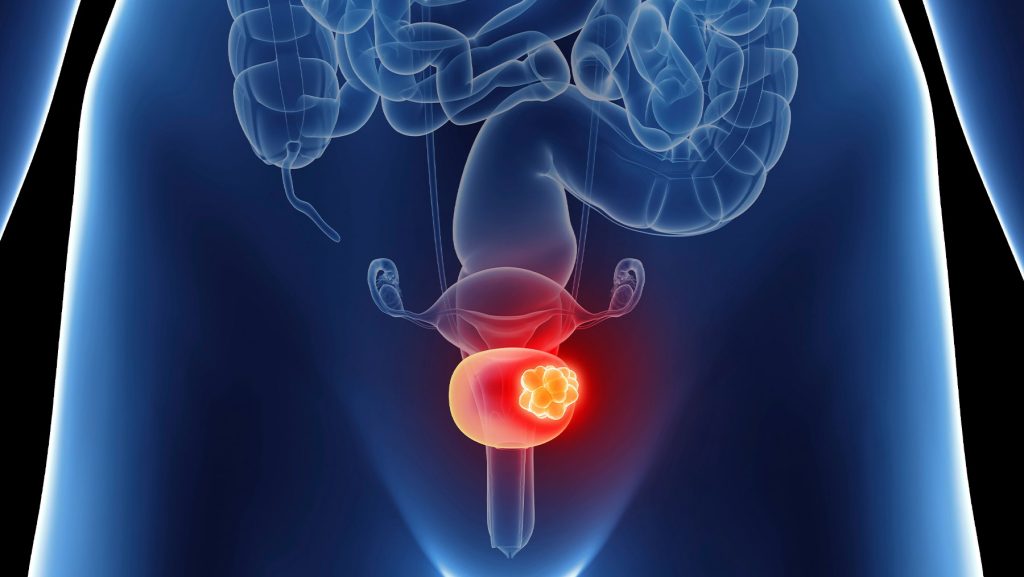Are you Familiar with the Early Signs of Bladder Cancer?
Bladder cancer is a prevalent form of cancer that affects around 68,000 adults in the United States every year. Although it can affect people of all ages, it’s most common among the elderly. This condition is very rarely diagnosed before the age of 40, and the average age of diagnosis is 73, according to Cancer.net.
Several factors increase the risk of developing bladder cancer, including smoking, being male, being white, not staying hydrated, and having a family history of the disease.
According to Cancer.org, bladder cancer patients who promptly seek medical attention have a 98 percent chance of surviving for at least five years. However, when all bladder cancer patients are taken into account, this survival rate drops to 77 percent. In other words, receiving treatment in the initial stages of the disease can significantly impact the patient’s lifespan.
Early Signs of Bladder Cancer
There aren’t many early symptoms of bladder cancer, and all of them can occur in a variety of different medical conditions. Therefore, you’ll need to go to a doctor as soon as possible to get a correct diagnosis and start the necessary treatment.
Anyone who is experiencing the following could have bladder cancer, an infection, a benign tumor or bladder stones.
Pain While Urinating
BladderCancer.net reports that 20 to 30 percent of patients with bladder cancer will experience irritative bladder symptoms such as painful urination. However, this means that the majority of patients won’t suffer from this symptom, especially in the beginning stages. In other words, you cannot rely on painful urination as a prime indicator of bladder cancer.
Urine That’s Tinged Red or Deep Red
Blood in the urine (called hematuria) is one of the first signs of bladder cancer. If there is enough blood it can change the color of the urine to be orange, pink, or darker red. The early stages of bladder cancer can cause bleeding with little or no pain.
Frequent Urination
Frequent urination may indicate the presence of bladder cancer, as well as serving as an early warning sign for diabetes or urinary tract infections (UTIs).
Being Unable to Urinate Despite Feeling the Need To
Are you frequently experiencing an urge to urinate without being able to do so? This unpleasant feeling of having a full bladder can be a symptom of bladder cancer. Additionally, bladder cancer may cause other symptoms, such as weight loss, loss of appetite, lower back pain on one side, swelling in the feet, weakness or fatigue, and bone pain.
Bladder Cancer Treatment Options
Timely treatment is crucial for achieving a positive prognosis for patients with bladder cancer, as it significantly increases the chances of a full recovery.
Intravesical Therapy
Patients in the early stage of bladder cancer (stage 0) often receive Bacillus Calmette-Guerin (BCG) immunotherapy, a vaccine for tuberculosis that is also an effective treatment for bladder cancer. Intravesical therapy, typically lasting for six weeks, is generally well-tolerated, with minimal complications.
Intravesical Chemotherapy Mitomycin chemotherapy can be administered directly into the bladder for patients with less advanced bladder cancer, minimizing the side effects of chemotherapy. A six-week course of intravesical chemotherapy is often sufficient for early-stage cancer.
Standard Chemotherapy
For patients in the later stages of bladder cancer, chemotherapy may need to be given via injection into a vein before or after surgery. Chemotherapy before surgery has been found to be the most effective option for positive long-term results. Common side effects of chemotherapy include fatigue, nausea, infections, and hair loss.
Radiation Therapy
High-energy rays are used to destroy cancerous cells in radiation therapy. Possible side effects include bladder irritation, rectal bleeding, and fatigue. The number of treatments required varies depending on the severity of the cancer, but radiation therapy is especially effective for localized tumors.
Ureterostomy
Urine flow can be redirected through an abdominal opening with this surgical procedure, and a pouch is worn to collect urine. If successful, there are no notable side effects, but patients must learn to manage their pouch.
Ureterosigmoidostomy
In this procedure, urine passes through the colon and is expelled via the anus. Possible complications include malabsorption, metabolic problems, bone demineralization, and renal function impairments.
Cystoprostatectomy
Prostate and bladder removal may be necessary if the cancer has spread extensively. Cystoprostatectomy is effective, but sexual dysfunction is common, and constipation may occur after surgery.
Cystourethrectomy
This treatment involves removing the bladder and urethra. Recovery can take up to eight weeks, and complications such as blood clots, electrolyte abnormalities, and dehydration can arise.
Removal of Abnormal Growth
Abnormal growth can be surgically removed, and a full recovery is possible as long as the entire growth is removed.
Early Treatment is Key
Promptly exploring all available treatment options when symptoms appear can help prevent bladder cancer from shortening one’s life. Getting treatment right away increases the likelihood of long-term survival, with only two out of every 100 patients dying within five years of their diagnosis. Delaying treatment can significantly reduce the chances of survival, with odds dropping to just 15 percent for patients diagnosed with stage IV cancer. If any of the symptoms listed above are experienced, it is best to consult with a doctor as soon as possible, as other serious health issues may also be causing these symptoms.

